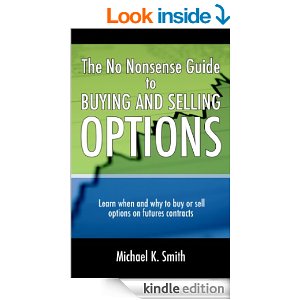Futures Options Trading-Commodity Options on Futures

Futures options trading has become very popular because of
recent market volatility.
There are two types of options on futures available to invest in. A
call option gives the purchaser the right but not the
obligation to buy the underlying commodity and a put
option
gives the option buyer the right but not the obligation to sell the underlying
commodity.
The purchaser of an options on futures contract is at risk for the
total cost of the futures option. This cost includes the premium
paid to the option seller, commissions and fees. For example, you
bought 10 crude oil calls for a total cost of $5,000 and therefore
your maximum risk of loss for that trade is $5,000.
There are many terms that options on futures traders must know. The
premium is the cost that the futures
option buyer must pay to the futures option seller or grantor. The
strike price is the price at which the
option buyer has the right but not the obligation to purchase or
sell the underlying commodity depending on if it is a call or put.
The expiration date is the day that the
option either expires worthless or becomes a futures contract if it
is in the money. In the money refers to
the amount that the option is either above or below the strike price
depending on if it is a call or a put. Learn
More >>
There are various commodity options on futures available for futures
options trading that are liquid enough to trade.
-
Crude oil, unleaded gas, heating oil, natural
gas
-
Gold, silver, copper
-
Corn, soybeans, wheat, soy oil, soy meal
-
Cotton, coffee, cocoa, sugar
-
Live cattle, feeder cattle, lean hogs, pork
bellies
Click here to learn about other available options on futures.
Futures options trading carries substantial risk of loss. The purchaser of an
options on futures contract is at risk for 100% of the total cost of the option
including premium, commissions and fees. Options on futures sellers have
theoretically unlimited risk to the upside and substantial risk to the downside.
To profit from the purchase of an options on futures contract the
purchaser must sell the option back to the market (offset) for a
higher value than the total purchase cost or let it expire if it is
in the money by a profitable amount. However, if it expires in the
money, it will become a futures
contract at that point and carry with it the potential for unlimited
loss associated with a futures contract.

Also visit:
online commodity trading
SITE MAP
|
